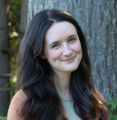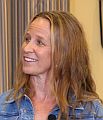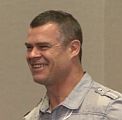CONVENING FOR ACTION AT THE BC LAND SUMMIT: “The 3-year transition strategy for embedding EAP at Vancouver Island University has multiple layers and partnerships, with several moving parts to balance,” stated stated Anna Lawrence, Project Coordinator, Mount Arrowsmith Biosphere Region Research Institute at VIU

“Absorb, communicate. and refine the communication. I am very focused on the 3-year transition strategy because Year One was just trying to absorb as much knowledge as possible. And so, in Year Two I think it is time to begin that communication process. And Year Three will be refining that communication process. In Year One, it was a juggling process with many moving parts and trying to keep them all in balance. And so, we look forward to sharing our EAP experience at the BC Land Summit,” stated Anna Lawrence.









